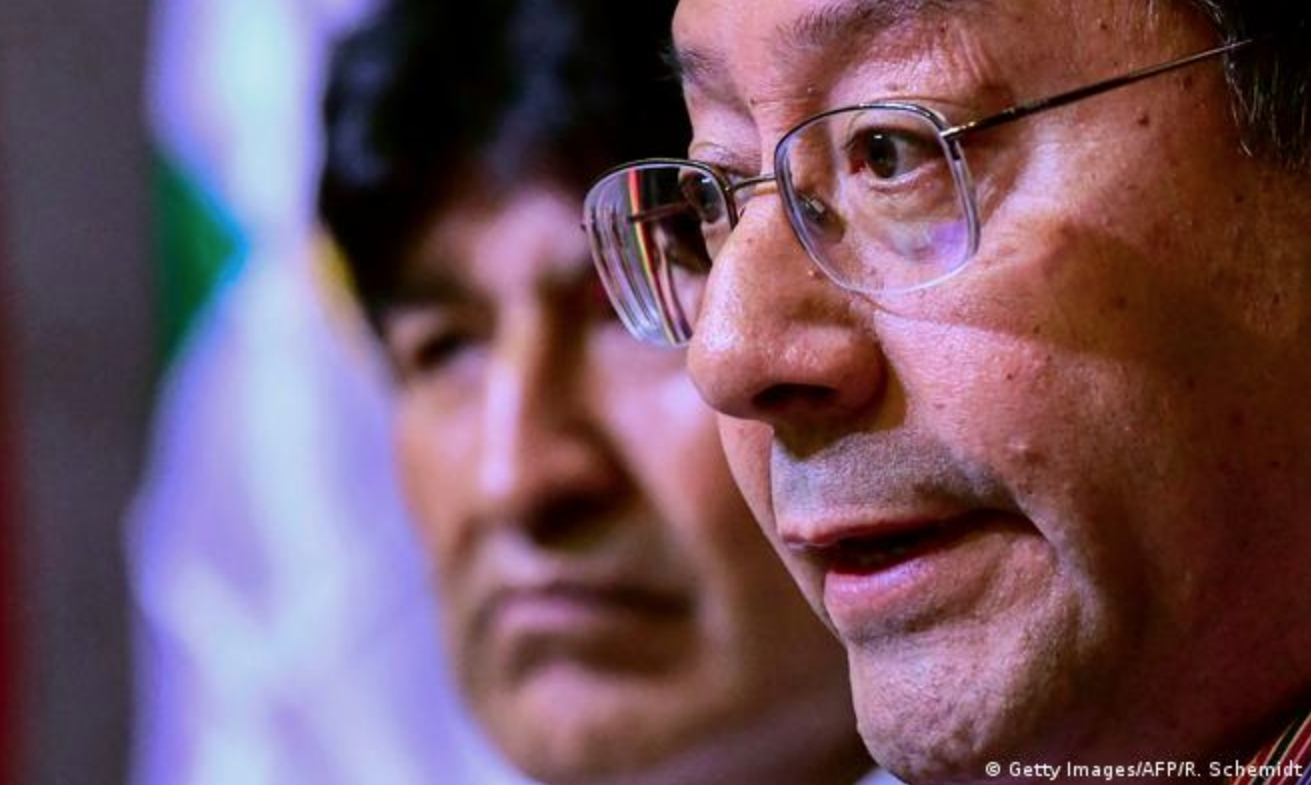Luis Arce took a huge leap into the void. At noon on Wednesday, December 28, police forces arrested the governor of Santa Cruz, Luis Fernando Camacho, and took him to La Paz so that the anti-corruption prosecutor could decide his fate. With Camacho, the list of prisoners judicially accused of being material authors of the departure of Evo Morales from power in November 2019, which the Movimiento al Socialismo (MAS) has targeted as a coup d’état, is extended.
If the Government imprisoned many months before the former president of Bolivia, Jeanine Áñez, and the former leader of the Potosinist Civic Committee, Marco Pumari (both are key players in the 2019 political crisis), it was to prevent them from becoming a factor of conflict. Áñez was already showing red numbers in her citizen support before being arrested, and Pumari had fought, in October 2020, with a crowd of people in Potosí square.
With Camacho, the situation was different. He had garnered good support in the 2020 presidential elections and had managed to win the governorship of Santa Cruz a year later. His arrest could generate a reaction in Santa Cruz and open a front of tension in one of the most economically and politically important departments of the country. This was always the Government’s reasoning: to be tough with some, and prudent with others.
What led the government to take the leap? What made it leave the political calculation to cause a conflict with unforeseeable consequences? It has to do with the leadership dispute in the MAS. As it is known, Morales, not finding in Luis Arce the will to change ministers and to have spaces of power in the Government, started to attack the president accusing him of being linked to the right wing of the country, with which Luis Arce would have entered into a pact not to punish the “coup plotters”.
Clearly, Luis Arce is trying to stop, by arresting Camacho, this criticism that could both weaken him and strengthen Evo politically. In addition, it could open a crisis of support for him both in the Legislative Assembly and in the social organizations of MAS, many of which do not approve of Camacho’s freedom. It is a key political move because, on the one hand, it satisfies the MAS radicals and, on the other hand, it leaves the pro-Evo forces without discourse, which will have to recognize Arce’s “courage” against Camacho. But it is a risky action with a high political cost.
Emotions as a political reaction
On October 22, 2022, Santa Cruz initiated a general strike to demand that the population and housing census be carried out in 2023 and not in 2024 as the Government postulated. It should be taken into account that the census data are the basis for the distribution of economic resources between departments, which, for a region with strong population growth like Santa Cruz, is key for its development.
What was unprecedented about the strike (apart from its duration of 36 days) was that it opened a space for public debate. Technical commissions were set up in which politicians and demographic experts debated at length about the date of the census. In the process, although there were street blockades in the cities of Santa Cruz and eventually confrontations between neighbors and police forces, in general, the conflict ended without regrettable consequences.
Today, due to Camacho’s arrest, things are different. The response of the Santa Cruz population has been one of indignation and rage. As soon as the crowd that came out to protest heard the news, they set fire to the Attorney General’s Office building, burned more than 30 vehicles and the house of several government officials, led to the suspension of flights at two airports and closed, for a few hours, the main highways of the department. Violence continued in the following days with clashes between civilians and police forces in the iconic area of Christ the Redeemer.
Behind these actions, there is a structural background that fuels emotional reactions. One of them is the mediation crisis between the central state and the regions. The MAS, being in power, and upon realizing its political and electoral weakness at a sub-national level, proceeded to annul opposition mayors and governors by judicial means, thus causing a political vacuum that could not be filled by social organizations related to MAS. As a result, the Government cannot dialogue with the regions because their authorities have neither representativeness nor legitimacy, even more so when, strictly speaking, Bolivia lacks a political party system, if by this we mean institutionalized parties that participate continuously in several elections.
This has led the regions to feel abandoned, unheard, and despised by the government, and this is precisely the feeling that emerges in Santa Cruz. For a significant part of the Santa Cruz population, the arrest of Camacho (a controversial character, with a right-wing and conservative line) is an abusive act and another example of Morales’ authoritarianism. This perception is compounded by the fact that the Bolivian justice system is not as implacable with MAS authorities, who very often are not apprehended despite ample and evident signs of corruption. For example, the governor of Potosí, Jhonny Mamani, has so far not been arrested, despite allegations that he attempted to purchase 41 overpriced ambulances.
Bolivia has inaugurated 2023 with an unforeseen political crisis. It would be wrong to think that the reaction in Santa Cruz only has to do with Camacho’s imprisonment. It is the trigger but not the cause. As we have seen, there are several factors of tension such as the instrumentalization of justice or the absence of political mediations that remain unresolved and are what ultimately fuel the unrest and violence. Bolivia is going through a process of political reconfiguration based on the internal dispute within MAS. It is a struggle for power that does not offer a new political project other than the continuation of Evism but without Evo.
*Translated from Spanish by Janaína Ruviaro da Silva












